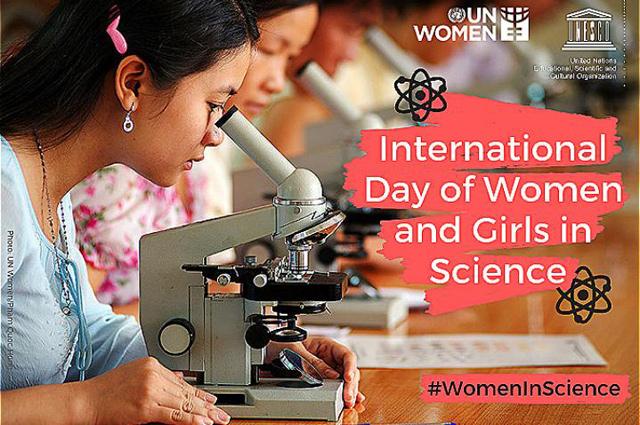- Local News
- Thu-2021-02-11 | 04:07 pm

Nayrouz News Agency :
This year’s celebration of the International Day of Women and Girls in Science, addresses the theme "Women Scientists at the Forefront of the Fight against COVID-19”, aiming at accelerating progress in achieving the 2030 Development Agenda.
The International Day of Women and Girls in Science, which is observed annually on February 11, was implemented by UNESCO and UN-Women, in cooperation with institutions and civil society partners to promote "full and equal participation” in science-related fields.
"The outbreak of the pandemic has clearly demonstrated the critical role of women researchers in different stages of the fight against COVID-19, from advancing the knowledge on the virus, to developing techniques for testing, and finally to creating vaccine against the virus,” according to the UN website.
The pandemic had a significant impact on women scientists, particularly affecting those at the early stages of their career, thus contributing to widening the existing gender gap in science, and revealing the gender disparities in the scientific system, which need to be addressed by new mechanisms, it said.
"At present, less than 30 per cent of researchers worldwide are women,” according to the UN.
This year, the sixth International Day of Women and Girls in Science Assembly would be held at the United Nations headquarters virtually, "with a special focus on the value of the social aspects and cultural dimensions in science, technology and innovation”.
On Wednesday, the Scientific Research and Innovation Support Fund, which is affiliated with the Ministry of Higher Education and Scientific Research sent The Jordan Times the number of female lead and collaborative researchers who participated in the fund-supported projects from 2008 until 2021.
"The number of female lead researchers is 89, while the number of male lead researchers is 350,” the statement said, noting that the number of female collaborative researchers is 171, while the number of male collaborative researchers is 867.
Female lead researchers account for 36.8 per cent of those who have participated in medical and pharmaceutical related projects, 15 per cent are in agricultural and veterinary science projects and 26.8 per cent in water and environment related projects, while no one has participated in energy science projects.
In their joint message on the occasion of this year’s celebration, Director General of UNESCO Audrey Azoulay and Executive Director of UN Women Phumzile Mlambo-Ngcuka said: "We need to ensure that women and girls are not only participating in STEM fields, but are empowered to lead and innovate.”









